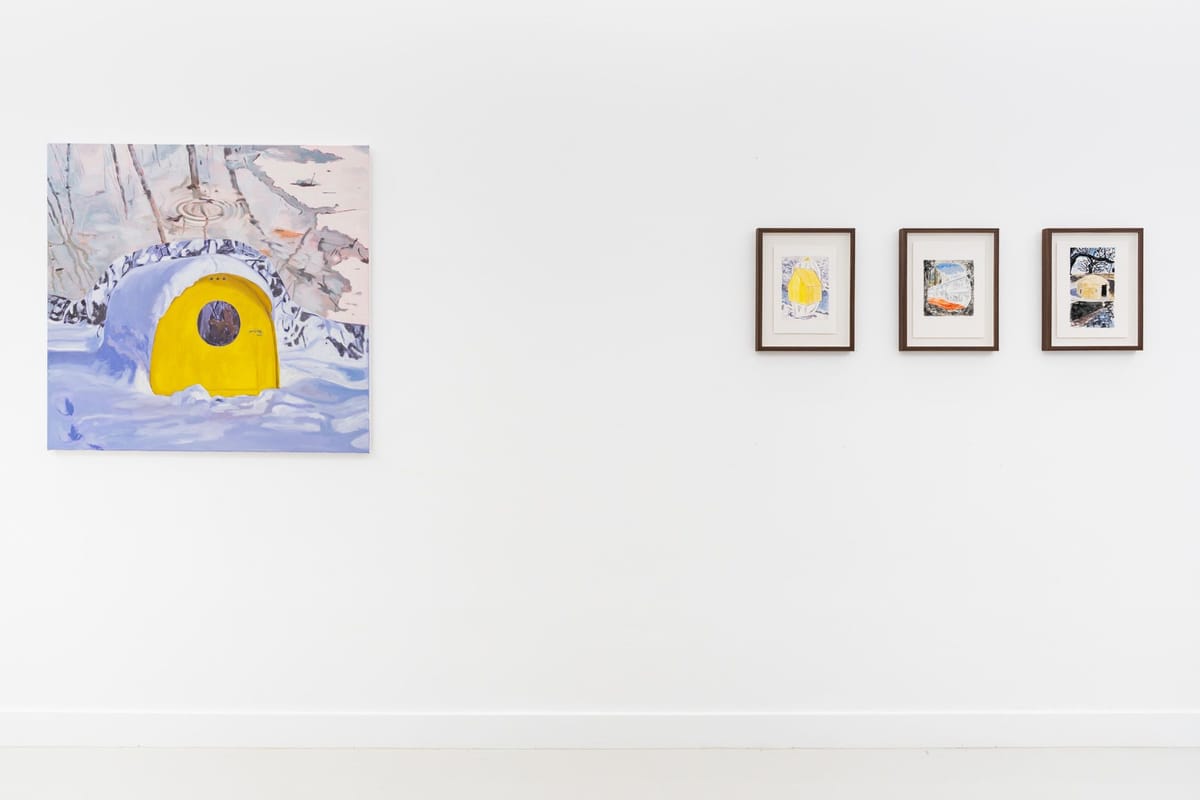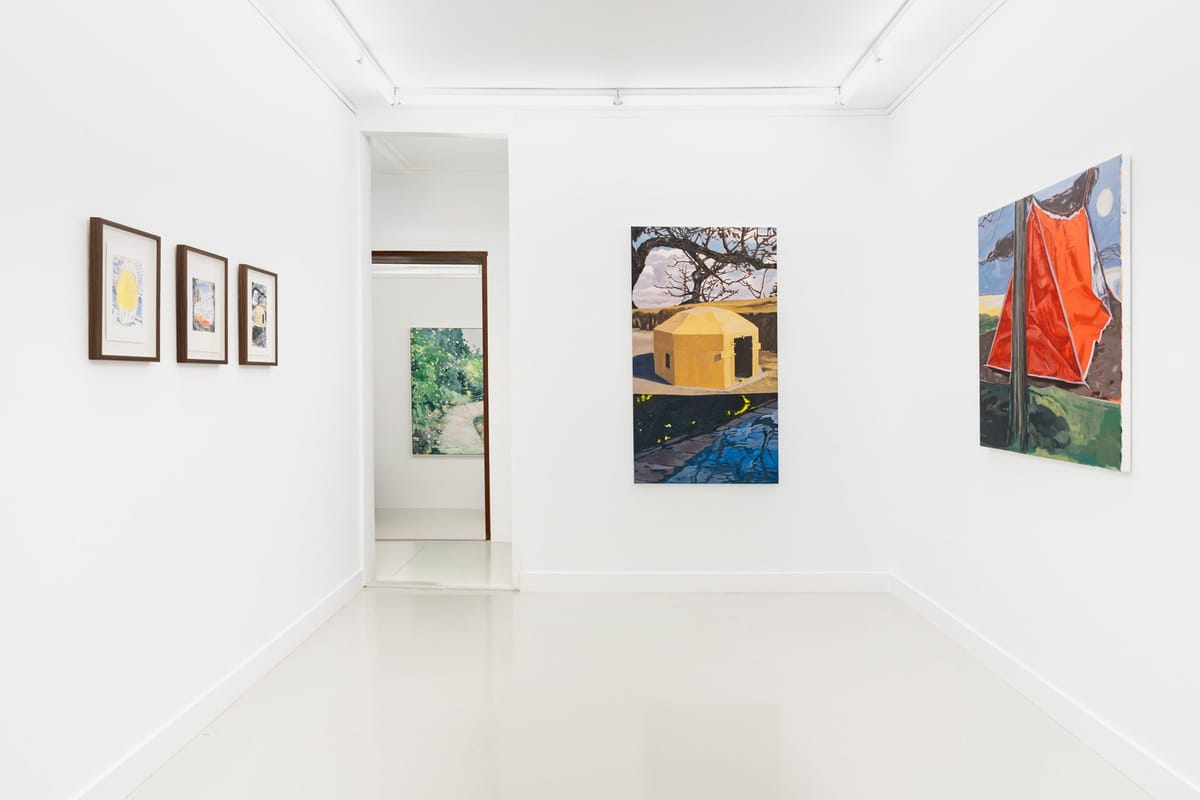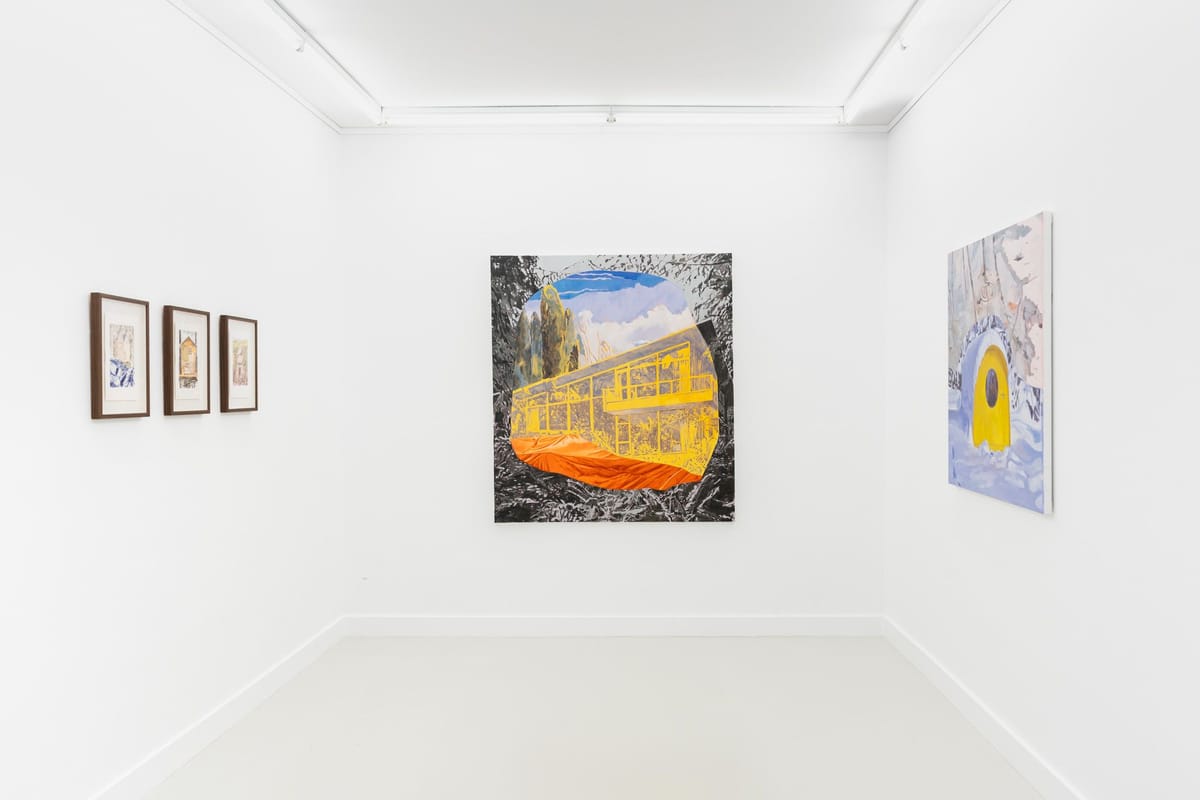Artworks
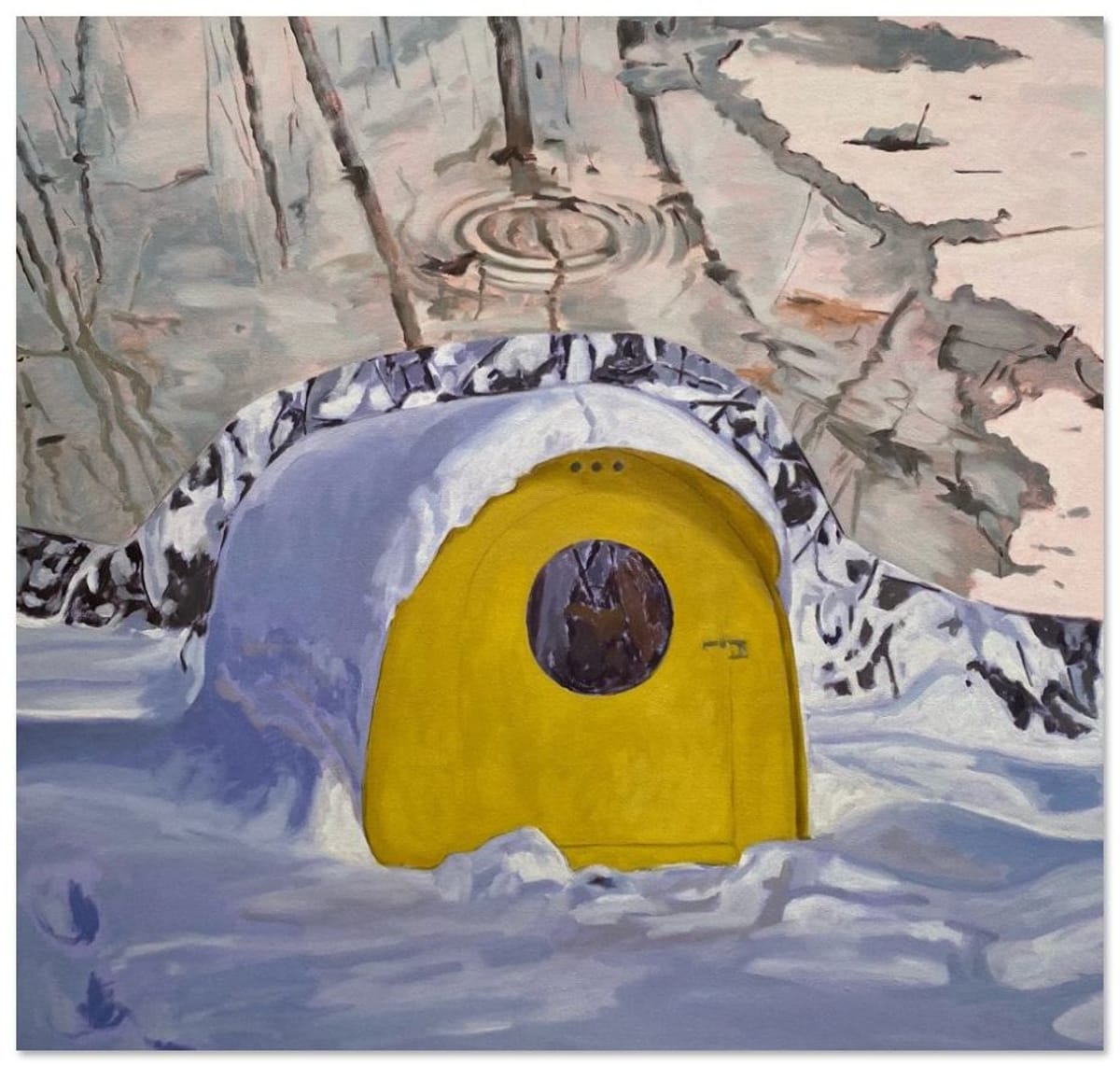
oil and acrylic on canvas
102 x 107 cm

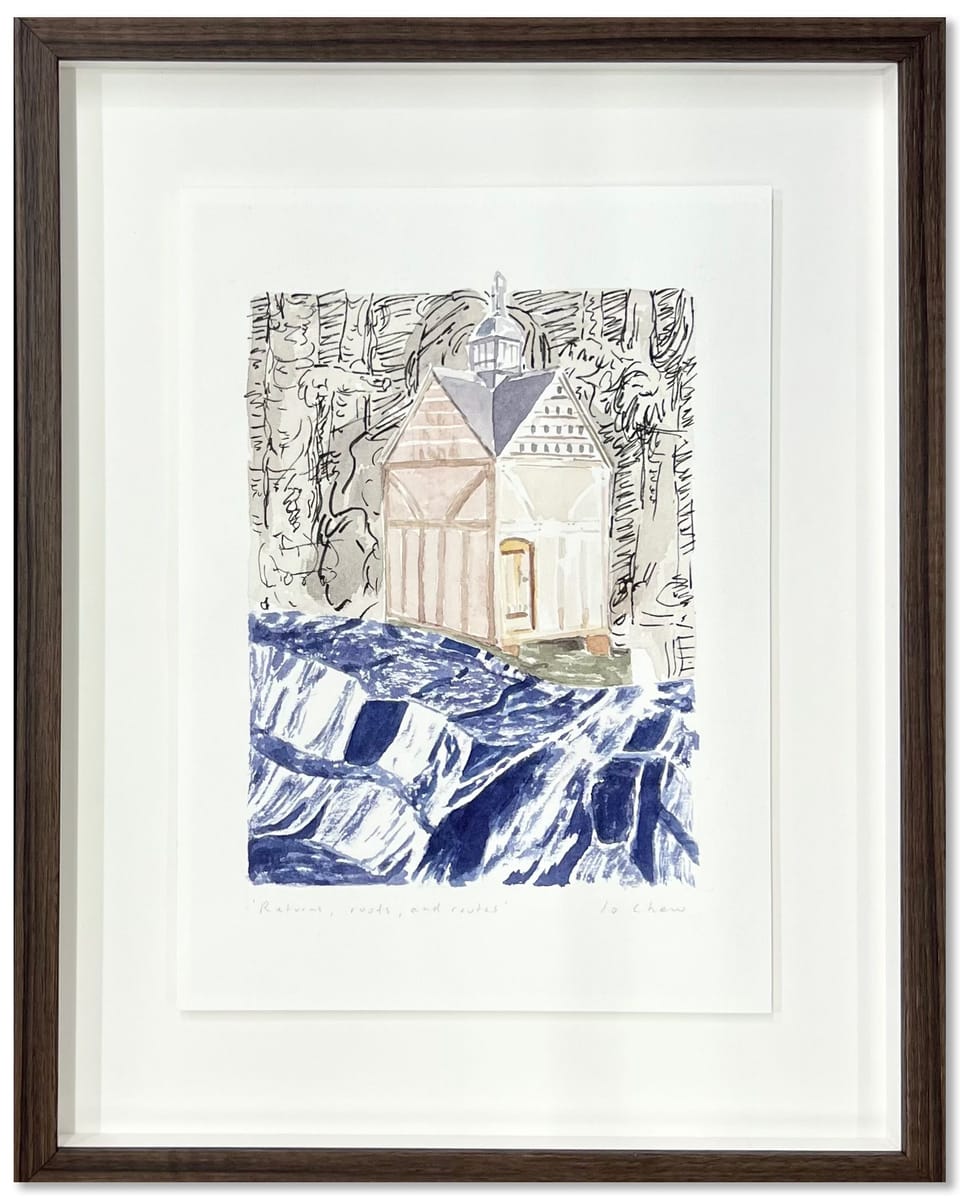
watercolour on paper
41 x 32 cm

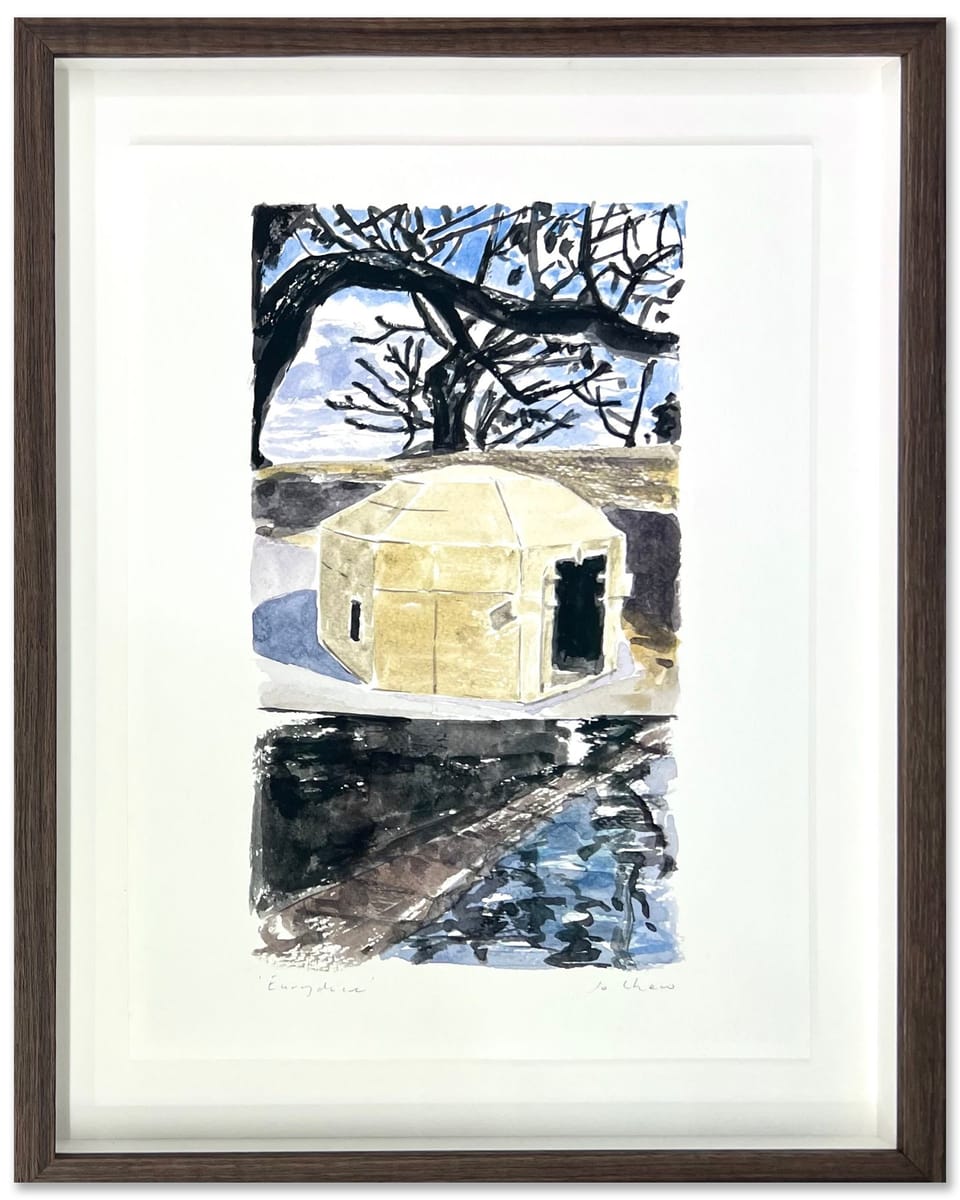
watercolour on paper
41 x 32 cm

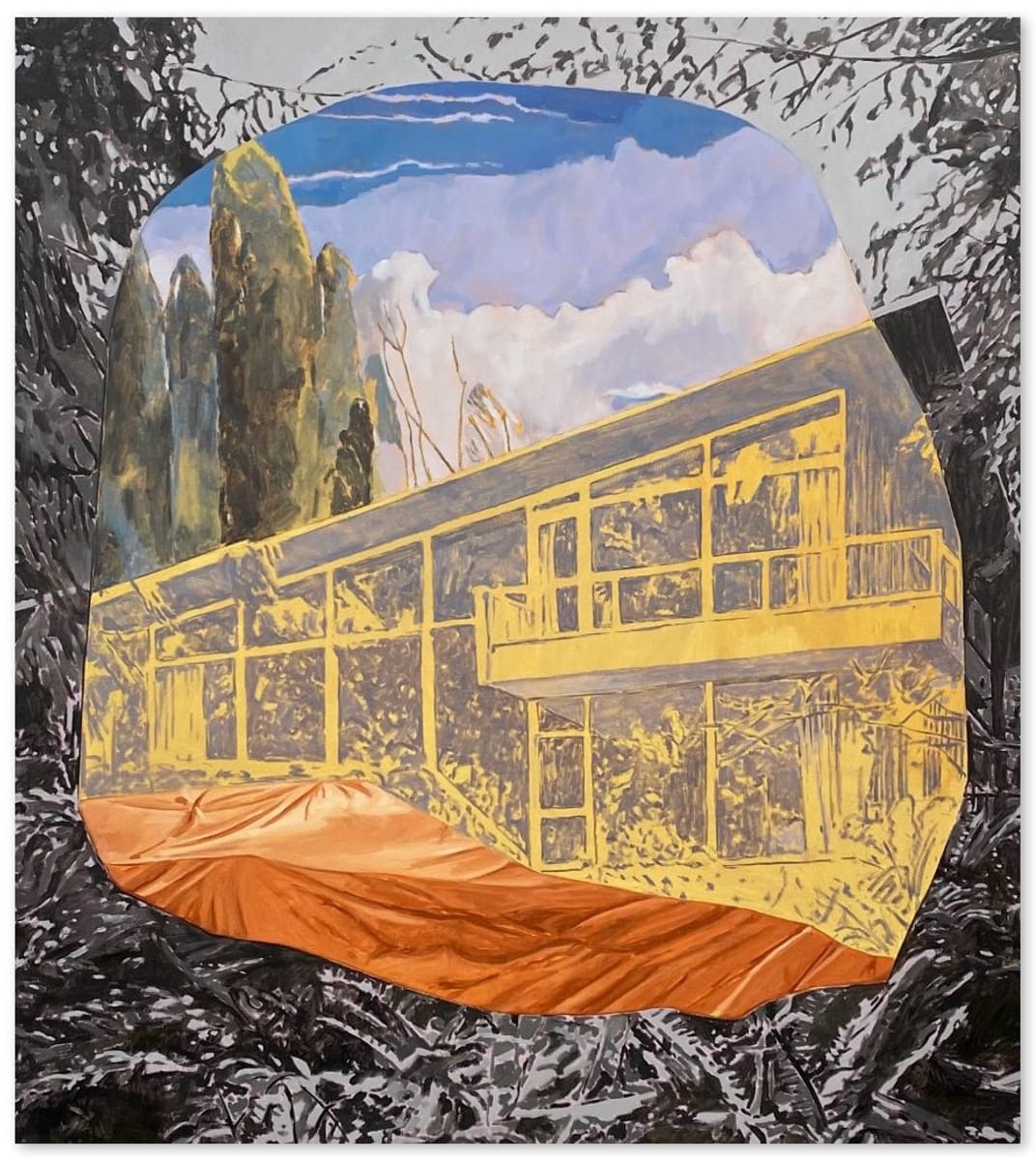
oil and acrylic on canvas
153 x 137 cm

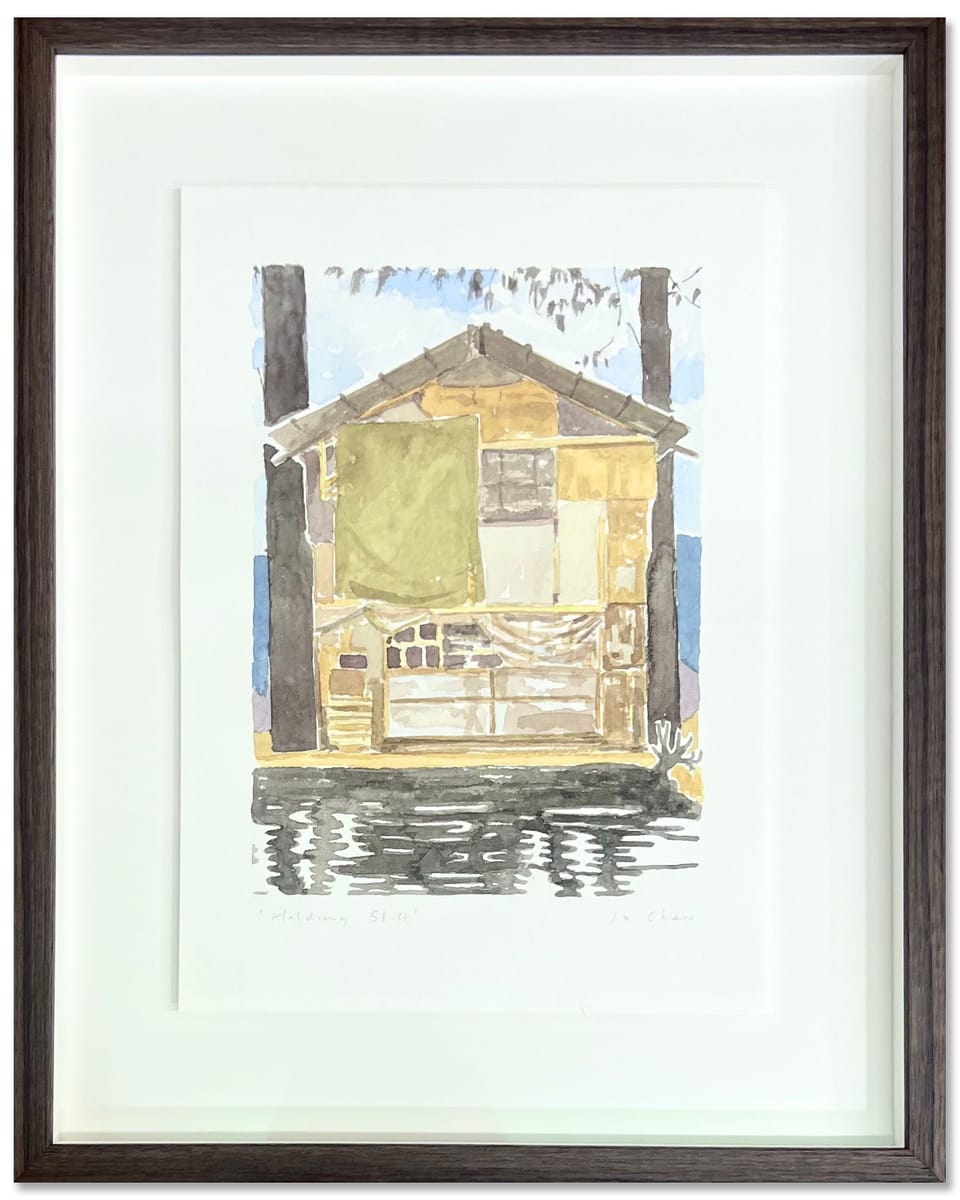
watercolour on paper
41 x 32 cm

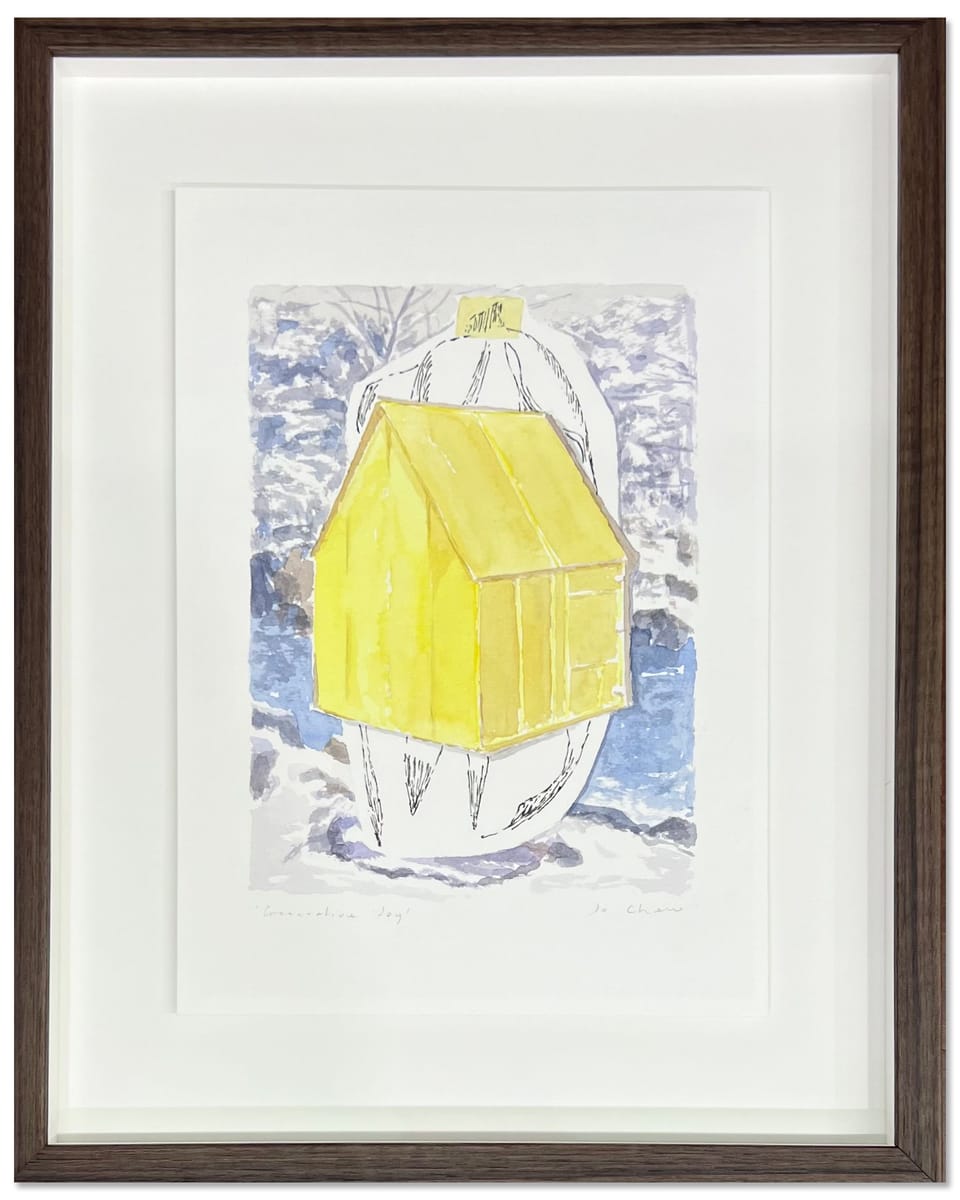
watercolour on paper
41 x 32 cm

watercolour on paper
41 x 32 cm
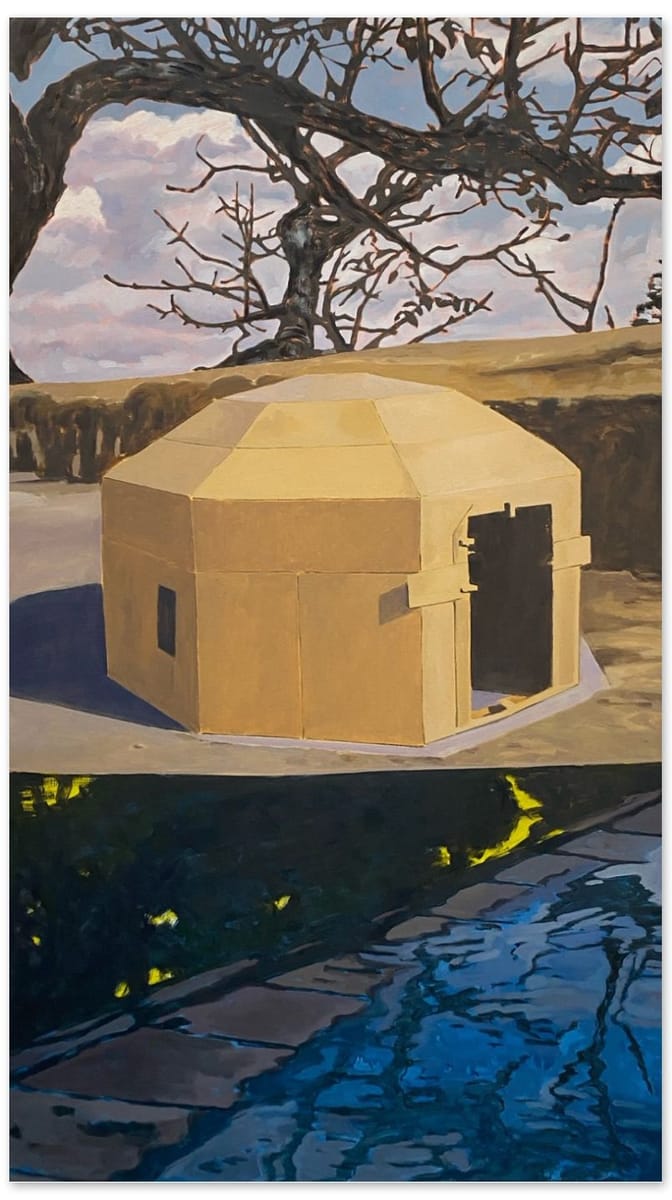
acrylic and oil on canvas
153 x 86 cm

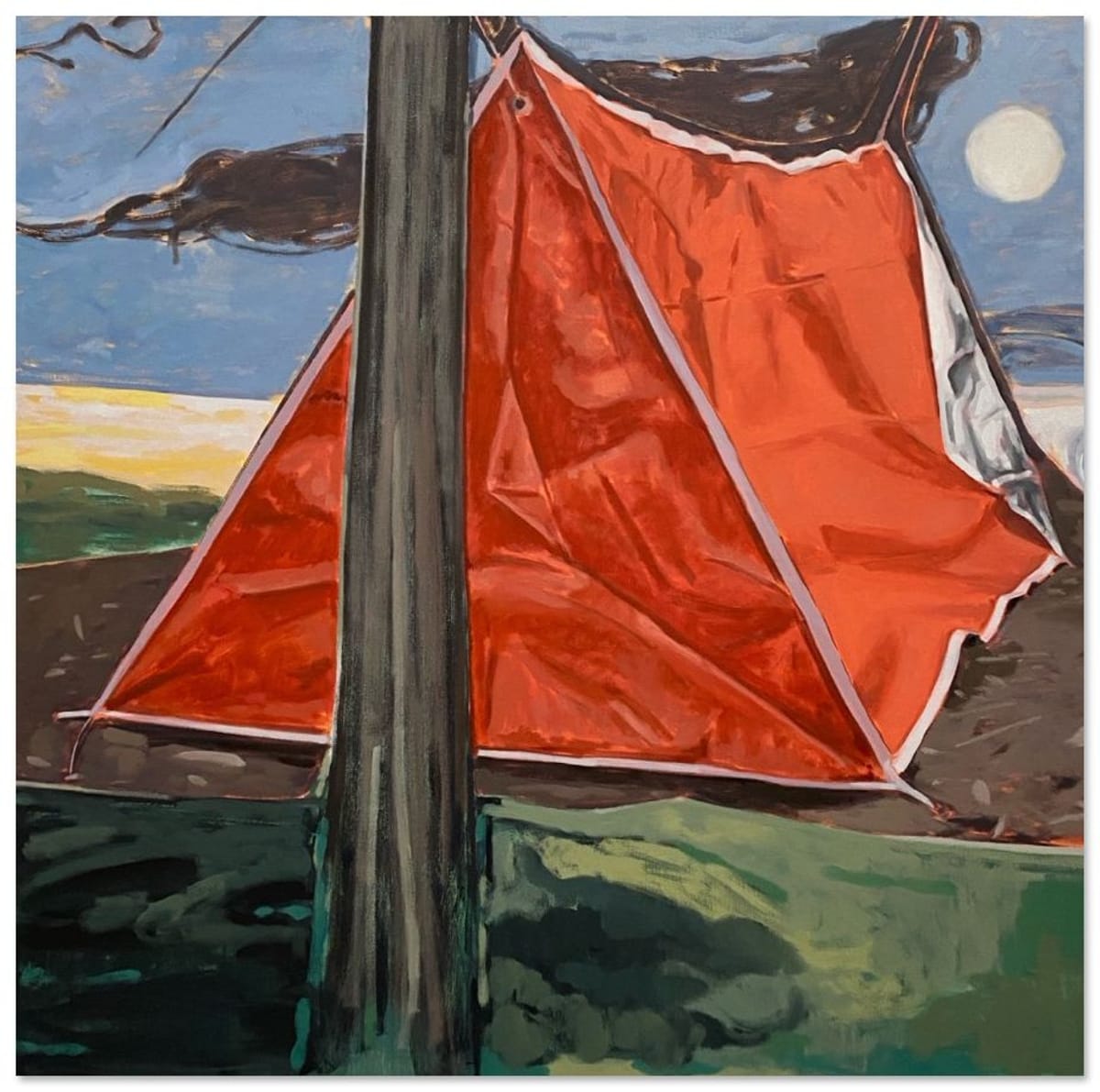
oil and acrylic on canvas
102 x 102 cm

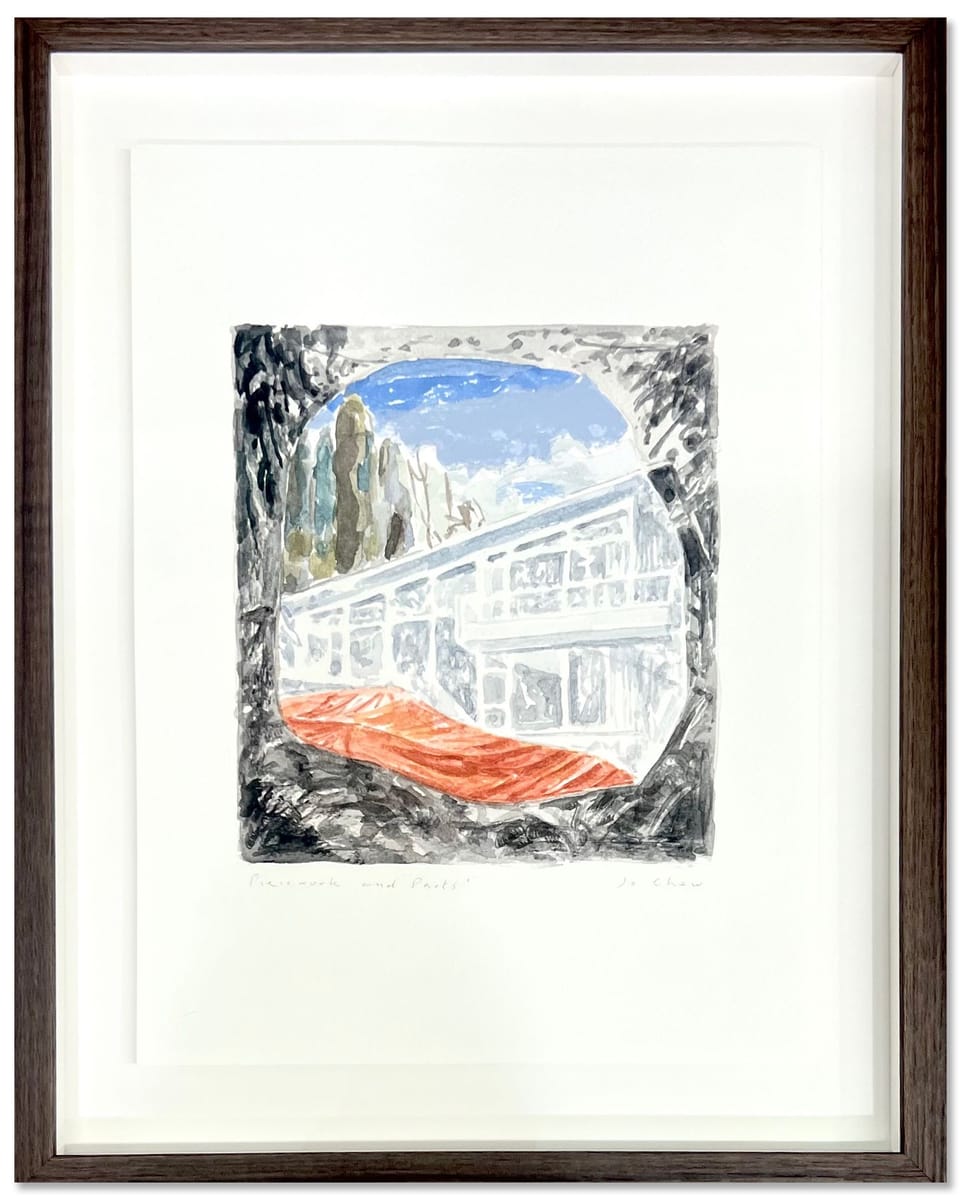
watercolour on paper
41 x 32 cm

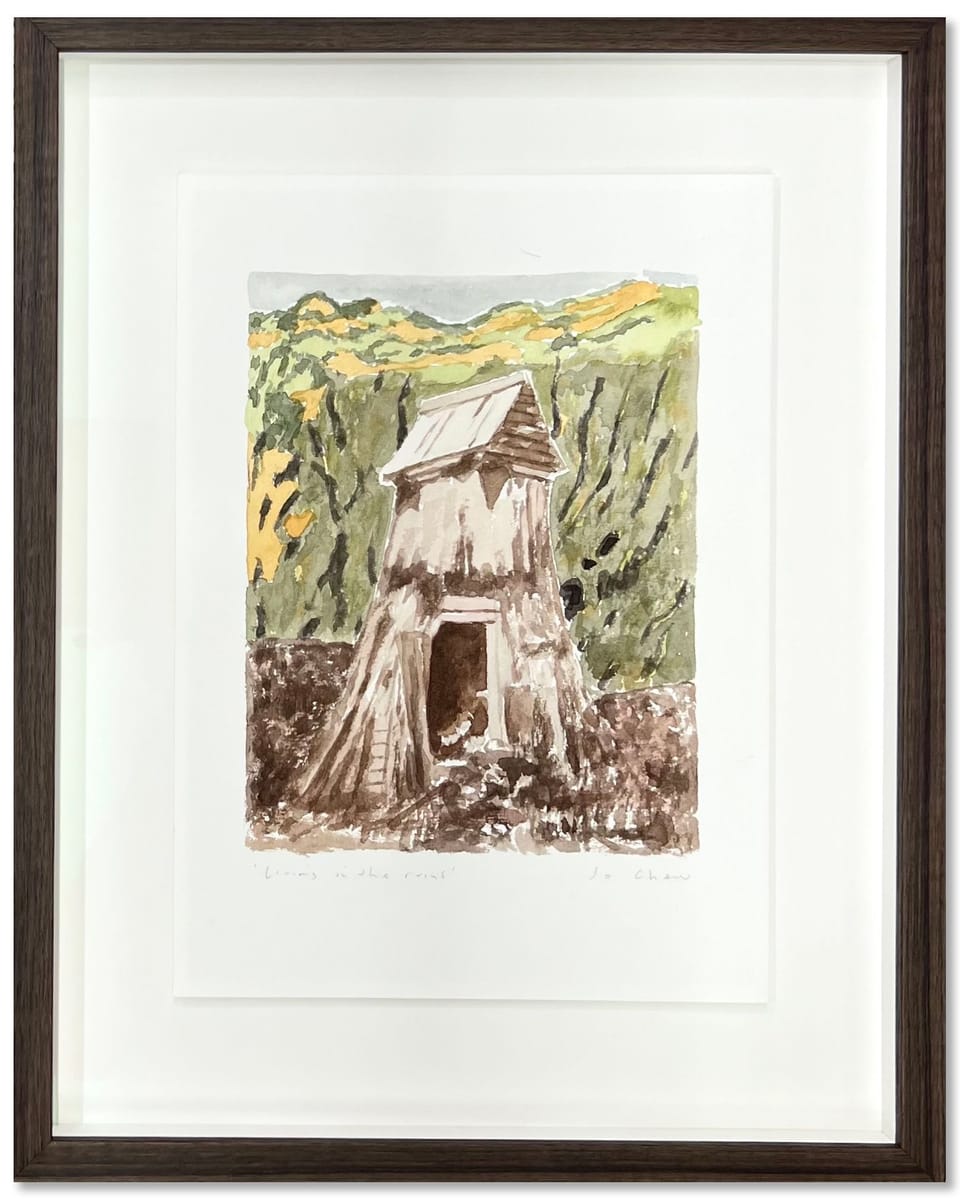
watercolour on paper
41 x 32 cm

Hades, moved to tears by the song of Orpheus, agreed to allow Eurydice to return with her lover.
Hades gave instruction: Orpheus was not to look back at Eurydice, who was to walk behind him. Orpheus was unable to hear her tread, and fearing a deceit, disobeyed.
Eurydice, who was dead, did not make noise when she moved.
Eurydice, who was dead, would not return to flesh until the sun warmed her alive again.
Hades had never before allowed the dead to return.
A song made the dour and strict ruler of the underworld bend his laws. Think on it: a song so filled with longing it could move the gods.
And yet Orpheus looked back.
It is as if he did not trust himself.
Hades, having made a ruling like no other, would not change his mind.
Eurydice, who was dead, would not see the sun again.
Nor would Orpheus join her in death.
Wandering, singing in madness at his own foolishness and the horror of his loss, Orpheus was torn asunder by the Maenads of Dionysus, who had grown weary of his endless keening. Orpheus, whose song had overpowered that of the Sirens, was left only as a head, still singing, undying, until a temple was built to house it and he became an oracle.
Perhaps, on some far Aegean Island, he sings still.
Humans survive.
From the coldest ice to the driest deserts upon the wide earth, there are people. People – humans – are good at thinking laterally and working out how to live where ever they might be. Humans use tools and they make tools. Humans use things in ways unexpected, making new from old. They can do astonishing things when they work together, sharing ideas, telling stories and whispering songs to send their children safe to sleep.
No matter how hard the world becomes, humans will always try, will find ways. People lose everything and do not give up. They survive.
Jo Chew’s art sees this and works with it. Jo sees how people make shelter, and how they want shelter, and what they do, not matter where they are. Her paintings are complex reflections of human needs and drive, derived from a long sifting of the varying hints and echoes that grew from her realisations about people and how they make their homes.
She began with seeing homelessness, and showing that; not as a disengaged observer, but as someone who was very close to that edge. After all, many of us are, and more of us are all the time. Things change in life, and the questions of security move about, taking on new forms.
How are we to survive now?
Jo has no answer to this, but she does not shy away from the question.
Over time, her work has moved from a direct engagement with the reality of homelessness to examining the world that homelessness occurs in. She looks for the images and fragments that can be pieced together to create a new vision.
Jo looks at images. Some she searches for, others come to her; since the growth of mass printing culture, and then the internet; there are images everywhere, adrift. She follows that tide, glimpsing ideas.
Jo gathers them, placing them together to create new context, finding more complex meaning and seeking new visions. This is an important aspect of her process, borne and informed by that human ability to find the new and use what’s there to create. She finds a picture of an earthquake shelter, a temporary dwelling that is always ready, positions it above a darkened reflective passage of water, and it becomes Eurydice, that lost love of Orpheus, left in the underworld. It is new myth made of old.
But it is not just finding images.
Jo paints, and the act of painting is central: it completes the process.
The paintings are not two found images placed together: they are a finished work, made entire, with no edges or overlap, perfectly merged to realise entirely the vision she has made.
Her work is always about painting as much as it is about seeing and thinking: how things are painted is part of the work, and if something is not finished, it was because it could not be: the house that seems unfinished in Piecework and Parts is a home out of reach; contrast this with the fully realised tent of Orpheus sings. The painted image is not a representation; it is an act of creation in motion. Each work, even the ones incomplete, are finished. Lifted from fragments, they become complete, even when they are unfinished: everything says something. There is so much in each work.
Jo Chew paints the idea of shelter, the hope for safety and the possibility of human achievements: she understands what can be done when people come together; how they might build, how they will negotiate challenges, both interior and exterior. Many of the dwellings are temporary, moveable and small, yet they are still shelters: permanent in their impermanence, they represent the ability to react and respond: carry the tent with you, just as you carry the things you hold dear in your heart and mind. It is enough to keep you safe, safe for now, and when you work with others, your tents are a village, and you are stronger still.
Home can be built of fragments we find and carry, and they will become complete, they will be enough.
Jo Chew’s paintings are infused with hope, with memories of shelter and the necessity of making what you can, with what you have. They reach backward and forward in our lives; they come from play and are pitched in the real. They straddle a line of warning and resilience and understand that we make our shelters in our minds just as much as we make them with our hands.
The story of Orpheus has no one author, no one ending, and is open, yet it sings to us across time of love lost. No one made this story, and it is still being made: whenever an artist is moved by it, whenever they find something in it, its fragments mean something new.
Andrew Harper, June 2025
Jo Chew
Born in Hobart, Tasmania
EDUCATION
2022
- PhD, School of Creative Arts and Media, University of Tasmania, Hobart
2018
- Honours in Painting (First Class), School of Creative Arts and Media, University of Tasmania, Hobart
2010
- Bachelor of Fine Arts, University of Tasmania, Hobart (Dean’s Honour Roll)
SOLO EXHIBITIONS
2025
- 'Piecework and Parts', Edwina Corlette Gallery, Brisbane
2024
- 'One for Sorrow, Two for Joy', Despard Gallery, Hobart
2022
- 'Displacement, repair, and the painted collage' PhD exhibition, Plimsoll Gallery, Hobart
2021
- 'A Song for the Unsettled', Moonah Arts Centre, Tasmania
2020
- 'Everything is going to be alright', Schoolhouse Gallery, Tasmania
2019
- 'The Wanderer, the Fool, and the Refuge', Despard Gallery, Hobart
2017
- 'Numbering Stars', Thienny Lee Gallery, Sydney
2014
- 'Cain', Despard Gallery, Tasmania
2012
- 'It’s Gonna Be (Alright)', Despard Gallery, Hobart
2011
- 'In media res', Entrepot Gallery, Tasmanian School of Art
AWARDS AND PRIZES
2024
- Finalist, Incinerarator Art Award: Art for Social Change, Victoria
2023
- Winner, Glover Prize for Landscape, Tasmania
2022
- Winner, Emerging Prize, Women's Art Prize Tasmania
- Finalist, The Churchie Emerging Art Prize, IMA, Brisbane
- Finalist, The Glover Prize, Tasmania
- Finalist, The Women's Art Prize, Tasmania
2019
- Winner, 'HATCHED' The National Graduate Exhibition at PICA, Perth
- Finalist, The Henry Jones Art Prize, Hobart
2018
- Finalist, The Bruny18 Prize, Tasmania
- Finalist, The Henry Jones Art Prize, Hobart
SELECTED GROUP EXHIBITIONS
2024
- 'Discovery Collection 23/24', Queen Victoria Museum And Art Gallery, Tasmania
- 'Figure Holding Ground', Contemporary Art Tasmania
- 'Sleepwalkers’, Moonah Arts Centre
2023
- 'Figment', Lady Franklin Gallery, Tasmania
BIBLIOGRAPHY
- Lucy Hawthorne. 'Jo Chew – stitches held fast by a brush'. Artist Profile, Issue 68, 2024
- Katherine Johnson. 'A tender examination of life’s precariousness'. Alumni Magazine. Issue 54, 2023
- Judith Abell. 'Jo Chew – displacement, repair and the painted collage'. Island Magazine. Issue 165, 2022
June 18, 2025
JO CHEW WINS THE 2023 GLOVER PRIZE
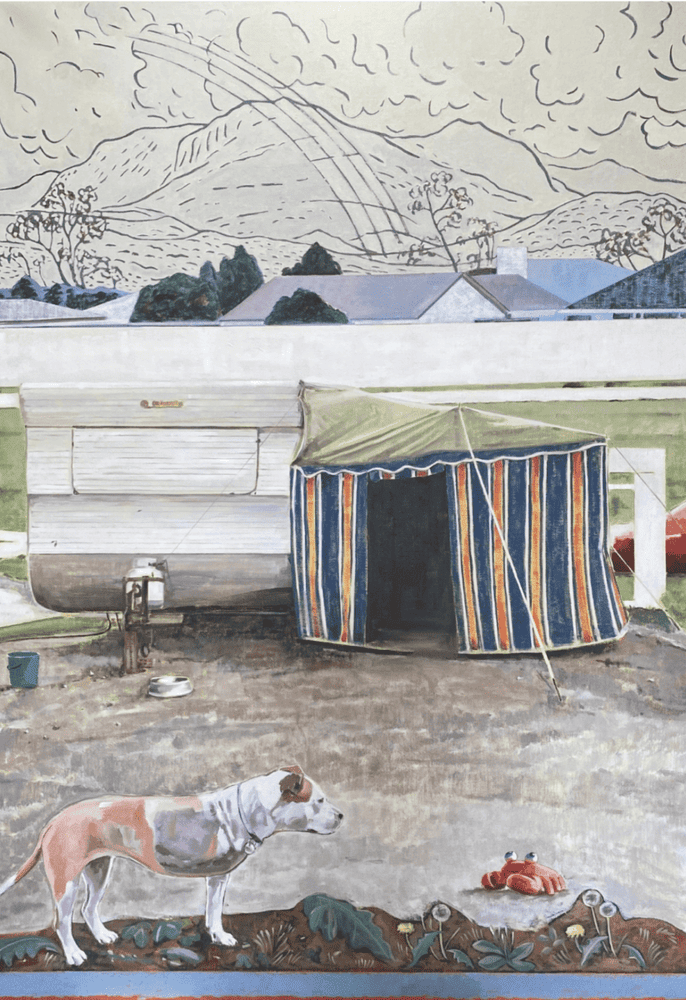
Congratulations to Joanna Chew, who has won the 2023 Glover Prize for her painting Tender.
Chew, a Tasmanian-based artist, wins $75,000 for the painting, which depicts a three-legged dog standing in front of a tent and caravan, a commentary on the accessibility of the housing market.
In her artist’s statement, Chew describes how “Images of tents and caravans were frequently in the news at the beginning of 2018 when my daughter and I moved back to Hobart. We lived with my parents for a year, unable to find a rental we could afford. It was easy to see why more and more people were forced into solutions like setting up a temporary home at the Showgrounds – an option that will cease within the coming months.”
The 2023 Prize is judged by Suzanne Cotter, director of Museum of Contemporary Art (MCA), Tasmanian artist Lucienne Rickard, and director of Niagara Gallery, William Nuttall.
Suzanne Cotter says of the winning piece, “It is a complex painting that addresses contemporary life and themes of home and belonging at the same time as it speaks to a history of painting and the figure of John Glover himself, whose landscapes can be understood as a search for self-recognition in a world that was not his own.”
Image:
Tender, oil on linen, 183 x 127cm
18 June 2025 – 8 July 2025
Jo Chew ‘Piecework and Parts’
